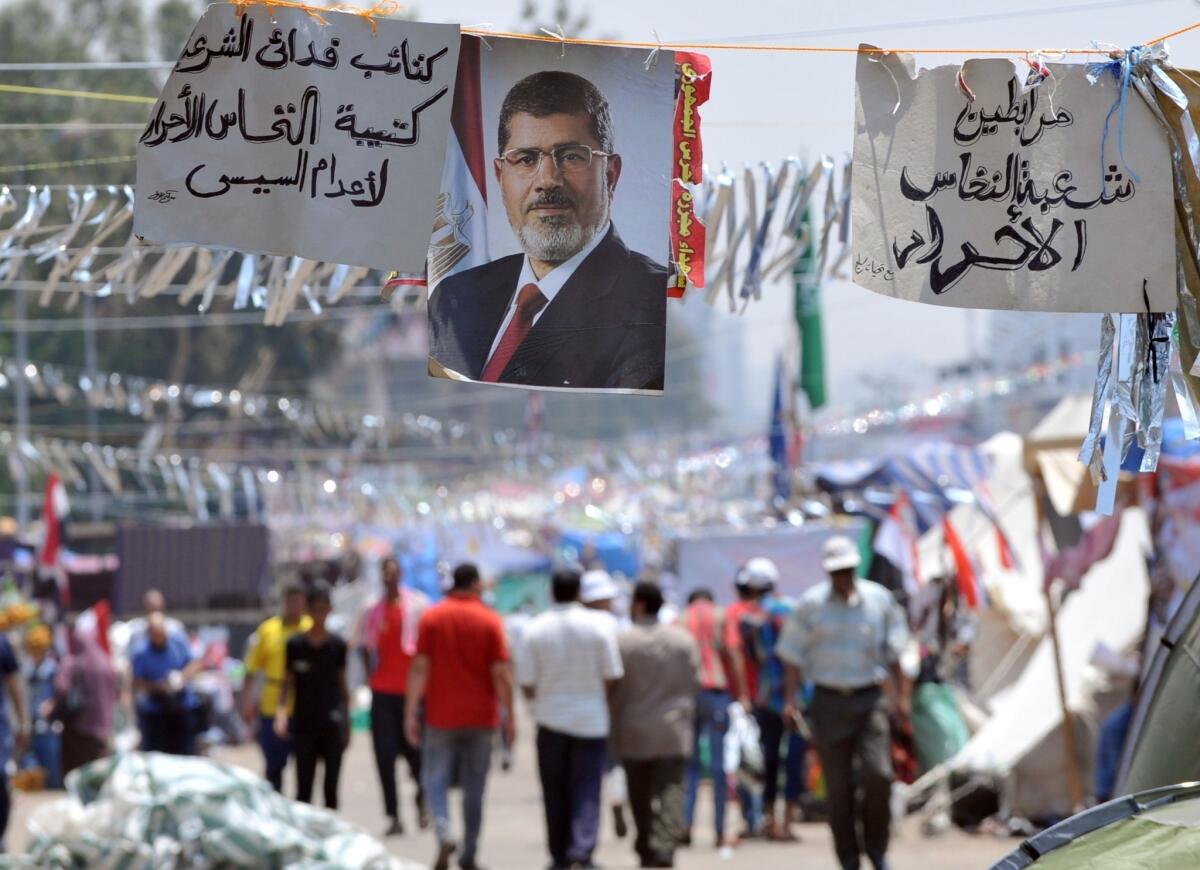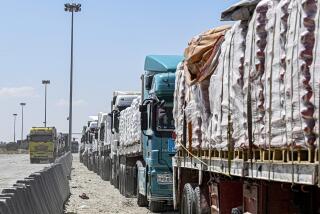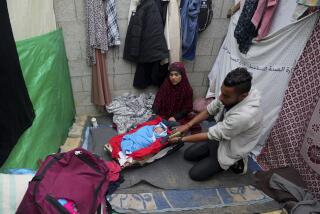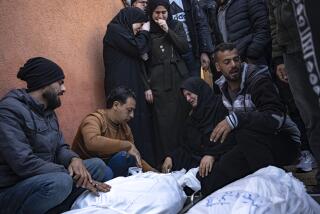Egypt clashes intensify; at least six killed

- Share via
CAIRO -- Stones and gunfire killed at least six people Tuesday as clashes between opponents and supporters of deposed President Mohamed Morsi intensified near Cairo University, which has become a battleground in the country’s political unrest.
Violence between the two camps, sometimes with the army and police in the middle, has escalated in recent days as each side has provoked the other in street fighting. More than 90 people, including three who were killed Monday, have died nationwide since Morsi was toppled by a coup on July 3.
Thousands of Morsi supporters have been staging sit-ins at Cairo University and across the Nile at the Rabaa Al Adawiya mosque. Most of the anti-Morsi contingent has been bunkered in Tahrir Square. The factions have been edging closer to one another. A march on the U.S. Embassy by pro-Morsi demonstrators Monday sparked a confrontation with protesters in nearby Tahrir Square.
Supplies of smuggled weapons have increased the bloodshed. Both sides say they have been targeted by snipers. Pistols, including some homemade models, are common and many men stand on the frontlines like urban warriors, wearing construction helmets and carrying shields of corrugated tin.
Interim President Adly Mahmoud Mansour has called for reconciliation that will turn the country to “a new page in the nation’s book. No contempt, no hatred, no divisions and no collisions.”
But a political solution remains elusive. From downtown Cairo to the Nile Delta, Molotov cocktails and swinging clubs are threatening the nation’s stability. Neighbors and shopkeepers around the university and Rabaa Al Adawiya have complained the sit-ins are increasingly disruptive. The army has said repeatedly that it would crack down on unrest, suggesting it may move to disband the demonstrations.
Morsi’s Muslim Brotherhood said it will not end its sit-ins or cooperate with the military-backed government until Morsi, the country’s first freely elected president, is reinstated. That is highly improbable, especially as a new coalition government has begun amending the constitution and preparing for parliamentary elections in six months.
Morsi supporters do not appear to have the numbers to stop a political process that is moving quickly without their input. The former president has been detained by the military without formal charges. His family has demanded his release, blaming the army for kidnapping him and arresting hundreds of Brotherhood members.
On Monday, Morsi’s daughter Shaimaa told reporters: “We hold the leaders of the bloody military coup fully responsible for the safety and security of the president.”
ALSO:
Myanmar begins new round of political-prisoner releases
Royal baby’s relatives ‘overjoyed,’ but what did world say?
Israel: Jewish settlement in West Bank carries out token eviction
More to Read
Sign up for Essential California
The most important California stories and recommendations in your inbox every morning.
You may occasionally receive promotional content from the Los Angeles Times.











